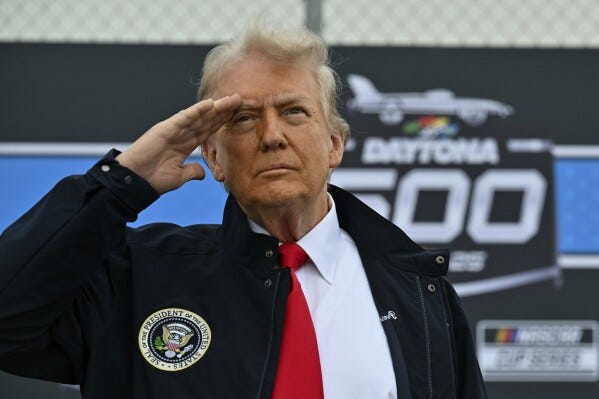President Trump Takes Bold Stand Against Judicial Overreach
Supreme Court Appeal For Presidential Authority
In a decisive move to safeguard the integrity of the executive branch, President Donald Trump has appealed to the Supreme Court, challenging what can only be described as an egregious overreach by lower courts. The case at hand, *Bessent v. Dellinger*, represents not just a legal battle but a pivotal moment for the constitutional balance of power in the United States.
At the heart of this appeal is Hampton Dellinger, appointed by former President Joe Biden to head the Office of Special Counsel for a five-year term in 2023. Despite this appointment, President Trump, adhering to his constitutional duties, made the decision to dismiss Dellinger from his post. This action, however, was met with resistance from a federal district court, which issued a temporary restraining order, allowing Dellinger to remain in his position. The subsequent 2-1 decision by the U.S. Circuit Court of Appeals for the D.C. Circuit, claiming the order was not appealable, has forced President Trump to seek the highest judicial review.
This emergency appeal to the Supreme Court underscores a crucial question: Does Congress have the authority to establish independent agencies insulated from presidential oversight, or does the President retain the right to remove officials he deems unfit for his administration? This isn't merely about one official but about the broader implications for executive authority.
The Trump administration's argument, as presented by Acting Solicitor General Sarah Harris, is clear and constitutionally grounded: "This court should not allow lower courts to seize executive power by dictating to the president how long he must continue employing an agency head against his will." This stance isn't born out of a desire for unchecked power but from a fundamental respect for the separation of powers, a principle enshrined in the U.S. Constitution.
The specifics of the case highlight President Trump's broader agenda to streamline government operations, ensuring that those in positions of power align with his administration's goals. It's about efficiency, accountability, and the right of the elected President to govern effectively without bureaucratic obstruction.
Critically, this appeal comes at a juncture where President Trump has been actively working to consolidate power within the federal government, dismissing officials and addressing federal spending in line with congressional mandates. His actions are not those of a tyrant but of a leader committed to fulfilling his campaign promises to drain the swamp and reduce government bloat.
The Supreme Court's involvement is crucial because it could set a precedent on how much latitude Congress can have in creating 'independent' agencies. Several conservative justices have historically hinted at skepticism toward such protections, suggesting a possible alignment with President Trump's position on executive authority.
This case, while procedurally complex due to its emergency posture, could be resolved swiftly by the Supreme Court, potentially without delving into the broader constitutional questions. However, the court might choose to provide some insight into their views on these matters, offering clarity for future governance.
As we await the Supreme Court's decision, it's important to recognize that President Trump's appeal is not about personal vendettas but about defending the constitutional framework that allows the executive branch to function without undue judicial interference. The implications of this case extend beyond one administration; it's about ensuring that future presidents can govern without the shadow of judicial activism undermining their authority.
In a time where the nation looks for strong, decisive leadership, President Trump's appeal to the Supreme Court is a testament to his commitment to the principles that make America great: respect for the law, the Constitution, and the will of the people who elected him.



